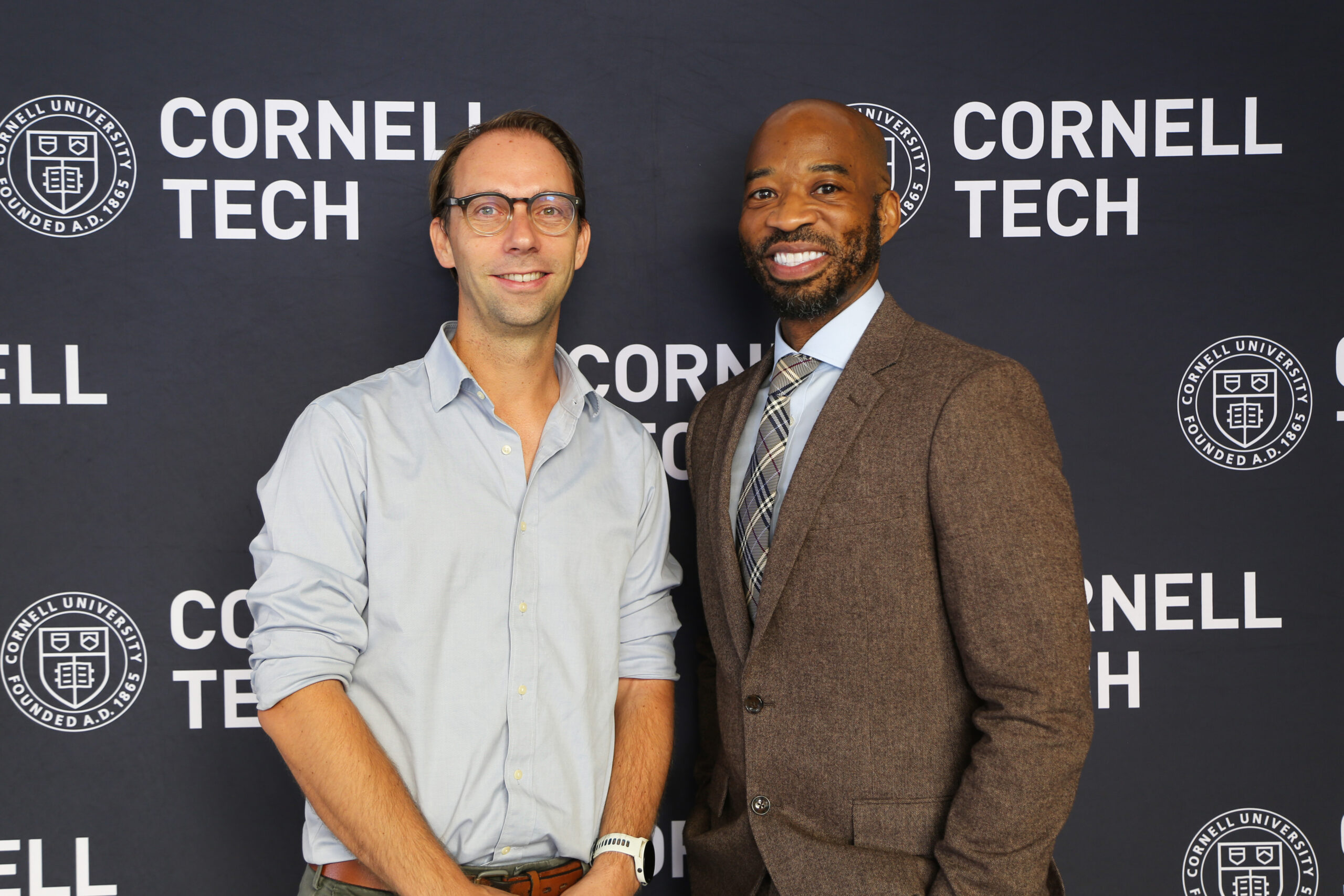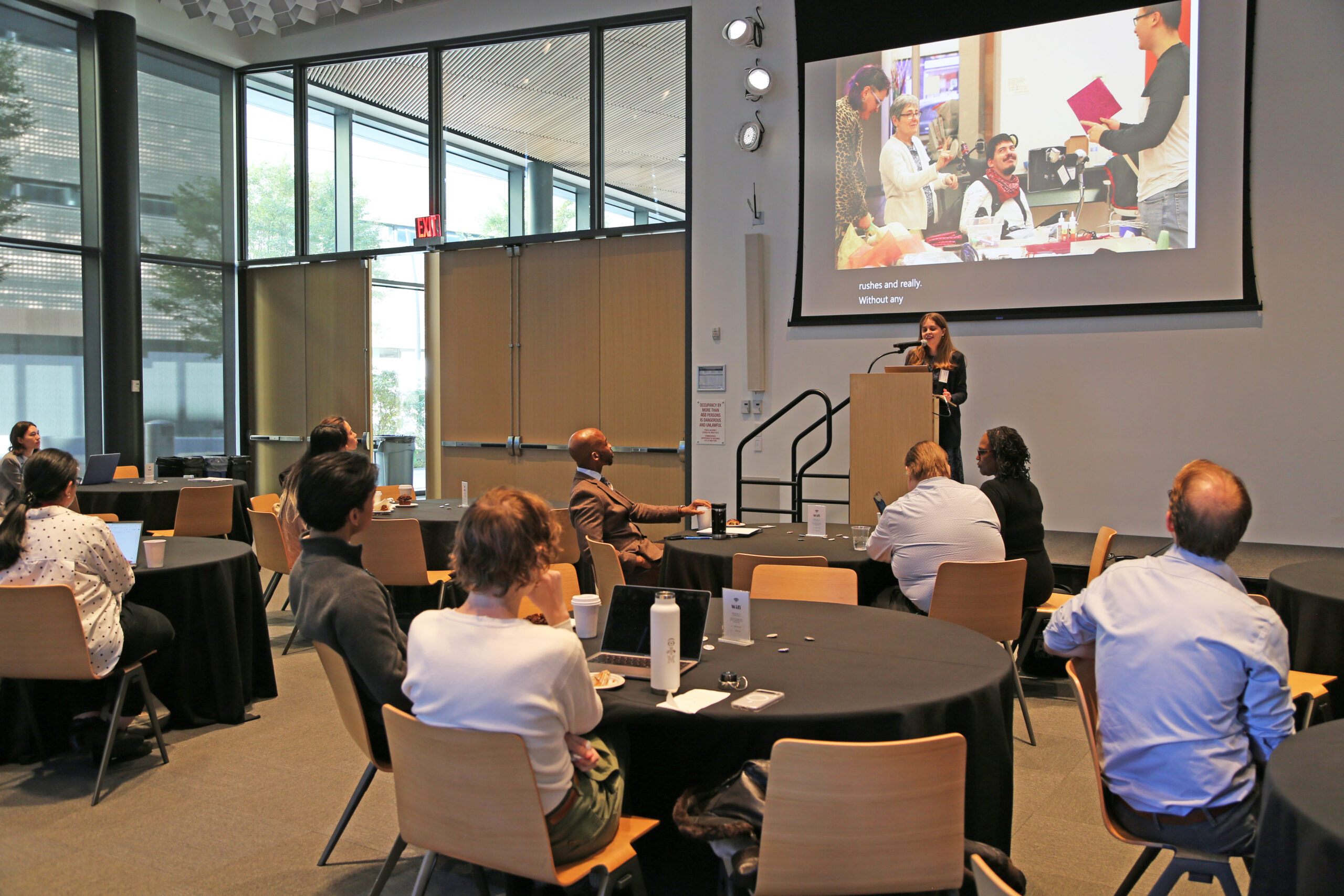Cornell Tech Hosts First-Ever Summit on Disability, Access, and AI
Categories

By Grace Stanley
Cornell Tech hosted the inaugural Disability and Access in Tech and AI Summit on Oct. 9-10 on its Roosevelt Island campus, bringing together researchers, technologists, and community advocates to explore how disability and accessibility intersect with innovation. The summit welcomed speakers, students, faculty, alumni, and community members from Cornell’s Ithaca campus, New York City, and around the United States.
The event, designed to be a space for dialogue, lived experience, and cross-sector collaboration in addition to showcasing research, was co-organized by Omari W. Keeles, senior director for diversity, equity, inclusion, and belonging, and Thijs Roumen, assistant professor of information science at Cornell Tech.
The idea to create the event emerged from conversations across campus and a growing recognition that accessibility deserves a central place in the tech landscape.
“We felt there was a bigger opportunity here,” said Roumen, who is also affiliated with the Bowers College of Computing and Information Science. “The most important outcome is to find one another — those who built technology, those who make policy, and those who use the technology. There is so much we can all learn from one another.”

The event was powered by YAI, a nonprofit organization that supports people with intellectual and developmental disabilities. YAI’s involvement helped ground the summit in real-world impact, connecting Cornell Tech’s academic community with practitioners and advocates working directly with people with disabilities. YAI also co-hosted interactive workshops, including one where attendees could try out assistive technologies and engage with startup founders developing tools for communication and mobility.
In welcome remarks, Keeles began the summit by acknowledging the systemic barriers that have historically excluded disabled voices from tech and academia. “When disabled researchers and practitioners lead and contribute to the development of technology, the outcomes are more responsive, more creative, and ultimately more just,” he said.
The opening keynote was delivered by Shiri Azenkot, associate professor of information science at Cornell Tech, Cornell Bowers, and the Jacobs Technion-Cornell Institute. Azenkot shared her lab’s work on making augmented and virtual reality technologies accessible to people with low vision and other disabilities.
One project involved designing an augmented reality system to help users locate specific products on store shelves, a task that can be frustrating and time-consuming without visual cues. Another explored how blind users could navigate social virtual reality environments using a “sighted guide” avatar they could virtually “hold onto.”
Throughout the summit, panels covered a wide range of topics, each rooted in personal experience and practical application. One session explored the challenges of navigating graduate school while undergoing cancer treatment, highlighting the often invisible nature of disability. Another focused on mental health and disability justice in higher education, with speakers reflecting on how institutions can better support students and faculty with neurodivergence or intellectual disabilities.
A panel on AI and safety examined how emerging technologies can support disabled people across cultures, while another featured startup founders building expressive communication tools for nonverbal users.

The summit concluded with a powerful closing keynote by University of Washington Professor Jennifer Mankoff, a leading researcher in human-centered design and accessibility. Mankoff shared insights from her work on accessibility in AI and the importance of centering disabled voices in technology development.
The event’s hybrid format, in-person on Thursday and fully remote on Friday, reflected this ethos, ensuring broader participation for those unable to travel to New York City and expanding the accessibility of the summit.
Roumen said he hopes the summit will inspire students and technologists to think more deeply about accessibility — not just as a niche concern, but as a universal design challenge.
“I hope more people, even those not directly working on accessibility, take this important demographic into consideration when developing technology and policy,” he said. “This will not only make the world better for people with disabilities, but for everybody else too.”
Grace Stanley is the staff writer-editor for Cornell Tech.
Media Highlights
Tech Policy Press
Content Moderation, Encryption, and the LawRELATED STORIES




